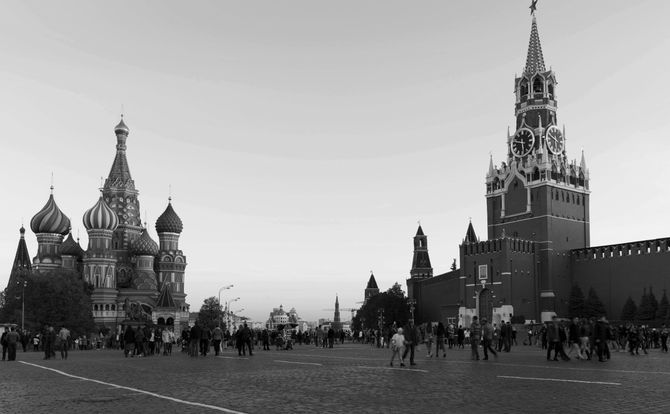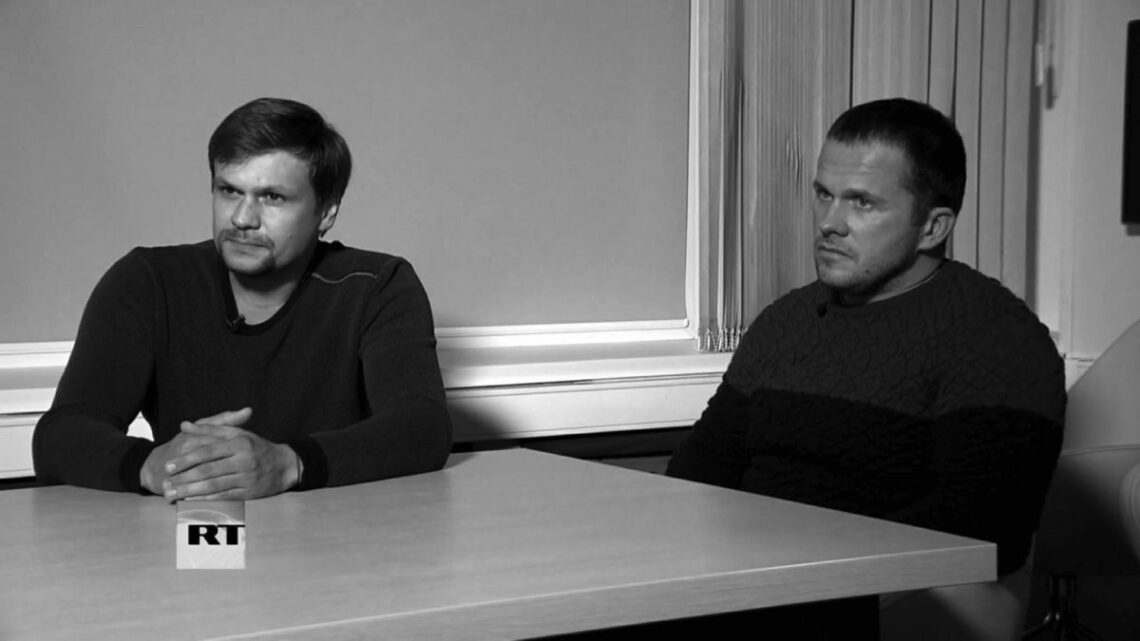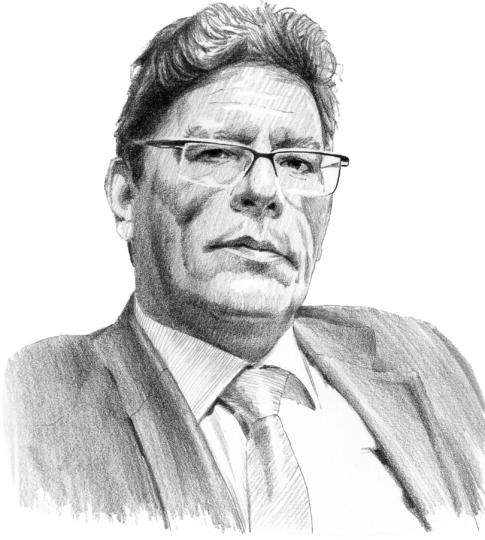What kind of Russian meddling?
Russian ”meddling” in other countries is so much a part of our political discourse that it has become fodder for jokes. Visions of a centralized command intelligence center in the Kremlin ignore the freestyle nature of Russian policies in the Putin era, where teams of players tussle like bulldogs under a rug.

In a nutshell
- Russia meddles abroad, but how and why these actions occur is poorly understood
- Political power in Russia is exercised by rival “teams,” supervised by the big boss
- The interplay of these teams results in unexpected, often stupid actions
- The Western impulse to quarantine Russia in retaliation will only make things worse
“Russian” meddling in the internal affairs of various states, from the United States to Malta, Venezuela or Madagascar, has become part of our political discourse and of the political reality it shapes. Its use as a universal explanatory model has even inspired some clever parodies. For example, the absurdist German political grouping Die PARTEI contained the following plank in its 2017 campaign platform: “Die PARTEI demands that German courts accept the explanation ‘Putin did it’ as an extenuating circumstance for late rent payments, travel delays, rear-end collisions and defective smartphone screens.” Humor works when it touches a real nerve. The joke was funny.
Russian interference exists beyond any reasonable doubt. Almost every individual accusation might be disputed, but Russian hackers, mercenaries, military personnel, spies, gangsters, shady dealers, spin doctors and other adventurers have left too many tracks all over the world to plausibly deny everything. Where there’s smoke, there’s fire.
On the other hand, plenty of evidence has also been left by perfectly harmless software engineers, actors, scientists, business executives and other people with Russian surnames or passports. Americans in both categories are even more numerous. The foregoing could mean one of two things: either being Russian has acquired an indelible stigma (like that reflexively applied to Jews, Muslims or Americans in many parts of the world) or we need a better operational definition of “Russian meddling.”
Team building
When people refer to “Russian meddling,” they usually mean “interference by the Kremlin,” i.e. certain politically motivated actions by the Russian authorities and their agents. But to correctly identify such activities, one must first grasp the nature of Russia’s current regime, without automatically using classifications dating back to the Soviet era or accepting at face value the regime’s own self-representations.
The regime wants to portray itself as highly centralized, a “dictatorship of law” in which the “power vertical,” directed by the “national leader,” dominates and controls all key institutions and actors. Abuses of power do occur, but these individual offenses (usually perpetrated by corrupt officials) are unswervingly cut short by the “eye of the Tsar” – the Russian idiom for the Prosecutor’s Office and, by extension, all law enforcement agencies.
The real constituents of Russia’s political regime are not institutions but informal groups of people.
This is pure nonsense, of course – more a reflection of wishful thinking in official circles than anything to do with reality.
The real constituents of Russia’s political regime (and, correspondingly, the units of its analysis) are not formal institutions, such as governmental agencies, political parties or corporations. Instead, the system’s building blocks are teams or groups of people – spontaneous, flexible, but generally stable networks and personal alliances that help individuals advance their careers and gain access to scarce resources. Some of these “teams” may possess certain strategic aims or value-oriented ideas, but these are strictly optional and secondary compared with their tactical goal of pure survival.
The individual makeup of teams can change, but it usually varies much less than the portfolio of official positions occupied by their members at any given time. An employee of the Presidential Administration might become a city mayor, a provincial governor may become a minister, a parliamentary committee chairman can become head of the secret service, a secret service chief might head a research institute, an academic might become a member of parliament, a deputy prime minister might become the chief executive of a corporation, and a CEO might transfer to the Presidential Administration – but these formal appointments have little bearing on team affiliation, and team affiliations (which are kept out of public view) never coincide with the institutional outlines of any public structure, including the machinery of state.
Rules of the game
Even so, the interplay of these unformalized teams is what constitutes the essence of Russia’s political process and gives it direction. These are not pressure groups in the conventional sense, because that would imply the existence of a freestanding public authority. Instead, the groups themselves are what passes in Russia for authority – or more accurately, for power.
A regime set up along these lines is indeed monocentric, but in a very limited sense. Vladimir Putin (or, rather, his approval ratings, not the president himself) plays an all-important role because he provides legitimacy to all teams, protecting these political elites – possibly just for the time being – from “the revolt of the masses”. Apart from that, Mr. Putin also functions as a moderator and final arbiter to prevent inter-team rivalries from degenerating into a suicidal bellum omnium contra omnes. Winston Churchill famously compared Kremlin political intrigues to “a bulldog fight under a rug.” However, when an experienced top dog is present, the bulldogs refrain from ripping out each other’s throats and find more peaceful modes of coexistence. After all, puppies are still needed to continue the bloodline.
Vladimir Putin reserves the right to make certain decisions that change the course but not the rules of the game.
Thanks to these circumstances, Mr. Putin as leader reserves the right to make from time to time (but not too often) certain radical decisions that change the course but not the rules of the game. This prerogative closely resembles Carl Schmitt’s idea of sovereignty as the power to declare “a state of exception.” Among the most recent of these decisions, one could include the annexation of Crimea and the painful, unpopular pension reform. Another example from the more distant past was the Yukos affair, which was essentially a wipeout of one of the most successful “teams” whose ambitions were seen as too large and unreasonable by other players. (This explains, by the way, why Yukos’s owner Mikhail Khodorkovsky failed to secure any significant allies or defenders.)
The “centralism” of Russia’s regime is largely reduced to such gestures. One step down from the pinnacle, at the level symbolized by the Kremlin, the interplay of teams is a daily routine. This explains why the most popular (because it is the most precise) saying about Russia’s political regime is that “the Kremlin has many towers.”
In almost all cases, competing teams act autonomously, at their own risk. Most important actions do require some form of preliminary clearance from the top, and any veto from the supreme authority cannot be disobeyed or questioned. But most often, the response is “let’s try it and see what happens.” Moreover, approval is often provided retroactively – and not just in cases where the initiative has proved successful, but also when the costs of disowning and punishing the unsuccessful actor are perceived as greater than the potential benefits.
Two-way street
How does this connect with “Russian meddling?” The thing is, the playing field for Russian teams is not just Russia; it is global. This is the natural and logical consequence of the Iron Curtain’s fall; as the former Soviet sphere opened up to the rest of the world, the world opened up to it as well. Globalization runs both ways, and it would be naive to think that breaching a wall allows some entities to enter but keeps others from leaving.
Take the internet, which was conceived as a domain of freedom without state borders. This it has become. Cyberspace and social networks have given Western countries enormous opportunities to promote their ideas of freedom, including political freedom, and they made extensive use of them. There is nothing surprising or wrong about that. What is surprising and hypocritical is the West’s mock horror at similar actions, usually awkward and tiny in scale, taken by the other side. It is even more wrongheaded to see in them “the hand of the Kremlin” and evidence of an ominous conspiracy, directed from one central point, to undermine the foundations of Western civilization.

Russians have indeed, most probably, “meddled” in the U.S. elections. By all indications, however, these actions were the private initiative of one of the Russian teams. Their business motivation can be explained as follows. Using local and borrowed know-how, Russian operatives developed techniques for organizing and influencing political campaigns online. These tools were created for domestic purposes, but since there are no borders on the internet, why should they not be tried outside Russia? If the candidate we were backing wins, we can claim the victory as our own and receive praise and rewards from above. If he or she loses, nothing need be reported to the upper echelons. And in any case, we are bound to get away with it, since the internet is a free domain where anything goes.
Mutatis mutandis, this same reasoning can be applied to the Skripal affair, the downing of Flight MH17 over southeastern Ukraine, and similar international incidents. “Mr. Petrov” and “Mr. Boshirov” did travel to Salisbury for some reason, but do we know precisely who sent them? A Russian SA-11 missile battery was indeed present in the Donbas combat zone, but do we know how and why it got there? Russian spin doctors were indeed in Madagascar before the 2018 elections – not because they were ordered there, but because no one expressly forbade it. Why not go then?
Disavowal costs
What these incidents have in common is that they were phenomenally stupid, clumsily executed and bereft of any intelligible goal. Almost by definition, they cannot be construed as part of any long-term strategy, insidious or otherwise. Some of the perpetrators were caught red-handed (more by circumstantial than direct evidence). Mr. Putin and the Kremlin denied involvement, which should surprise no one.
To be fair, it is very unlikely that he (or they) did give such orders, which could only be conceived by imbeciles or maniacs. In addition, Mr. Putin has to remain true to his oft-declared principle of “sticking up for one’s own.” The cost of disavowing inept or rogue operatives can be unacceptably high if it undermines the leader’s role as the supreme arbiter and legitimizer of competing teams. The chief bulldog has no desire to be chewed up and have his bones spat out from under the rug.
Of course, it makes sense to punish those responsible for debacles. But it must be kept quiet, inside the family, with the timing deferred and the responsibility untraceable. Here the sudden death in November 2018 of General Igor Korobov, the 62-year-old chief of the Main Intelligence Directorate (GRU), gives much food for conspiracy theorists, as does the similar demise of his immediate predecessor, 58-year-old General Igor Sergun, in January 2016.
Hide a leaf
Those fighting the counterintelligence war against the “Russian threat” do not lack cogent arguments, both moral and practical. Whatever an autocrat thinks or does, he is still responsible for all that happens in the state, because that is the nature of an autocracy. At the same time, portraying the enemy as evil and omnipresent is a useful tool for achieving political goals, and it would be strange if Western elites did not use it. Yet those who cry “The Russians are coming!” at every opportunity should consider the potential consequences.
Firstly, the cure for Russian interference might be worse than the disease. Certainly, such behavior cannot be stopped by any personal or even institutional changes in the Russian government. Sooner or later, President Putin will depart and a “thaw” of some kind will occur. But the political “teams” and their interests (most of them quite legitimate) will still be there.
Any effort to shove the Russian genie back into its bottle would simply consolidate the political regime.
The only sure-fire way to get rid of Russian meddling is to get rid of the Russians – by isolation and containment, herding them into an international ghetto. It is not quite clear how this could be accomplished. In Russia, visitors from Western Europe and the U.S. have increasingly fallen victim to spy hysteria – which is a national disgrace. Do the U.S. and Europe wish to be equally disgraceful? The Berlin Wall was built by the “evil empire,” not by the free world. It would be strange and shameful for the West now to start erecting a barrier on its own side of the border.
A second consideration is that any effort to shove the Russian genie back into its bottle would simply consolidate the political regime and make it harsher. The effect would be greater coordination of Russia’s activity abroad under a single center, much as it was during the Soviet era. This would immediately highlight the difference between Russians meddling and Russia’s meddling, or between the imaginary KGB and the real thing. This outcome is not in anyone’s interest – apart from the future KGB, of course.
Thirdly, the more noise and panic there is about Russian meddling, with paranoid conspiracy theorists turning over every stone, the easier it will be for the Kremlin to use this hysteria as a smokescreen to get on with its real work. As the novelist G.K. Chesterton wrote, “Where would a wise man hide a leaf? In the forest. If there were no forest, he would make a forest. And if he wished to hide a dead leaf, he would make a dead forest.”
In this case, there is no need for a wise autocrat to make a forest – his adversaries are doing it for him. For him, that is very convenient. For them, it is very stupid.








